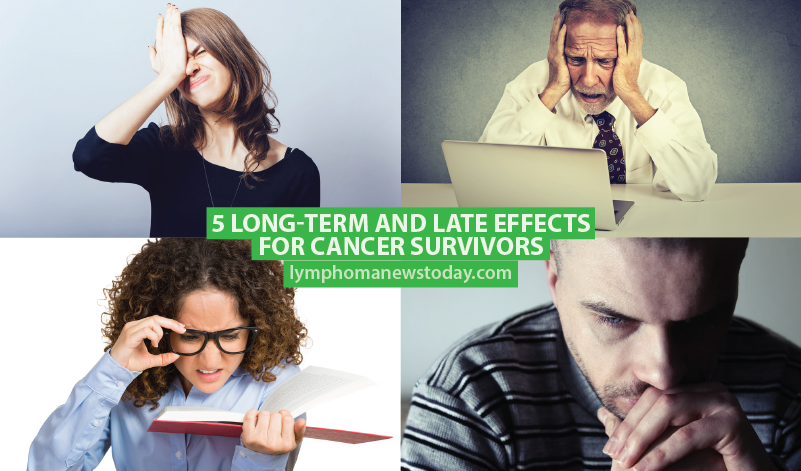According to the Leukemia & Lymphoma Society, there are some cases in which blood cancer survivors might suffer some long-term or late effects from their treatment.
Some long-term effects, such as fatigue, for example, may linger for quite a while (months or even years) after therapy.
On the other hand, late effects such as heart disease, other cancers or other medical conditions, might only appear years after the end of treatment.
Address your doubts and concerns with your doctor, since the risk of developing long-term or late effects can be influenced by the treatment type and its duration, your age when the treatment was performed, your gender and, also, your overall health.
1. Cognitive Effects

Some cancer treatments such as radiation therapy and chemotherapy may cause some difficulties with mental functions such as memory, concentration or being able to multitask and keep track of different tasks at the same time. This is also known as brain fog or chemo brain.
Watch a lymphoma patient talk about his experience with chemo brain.


